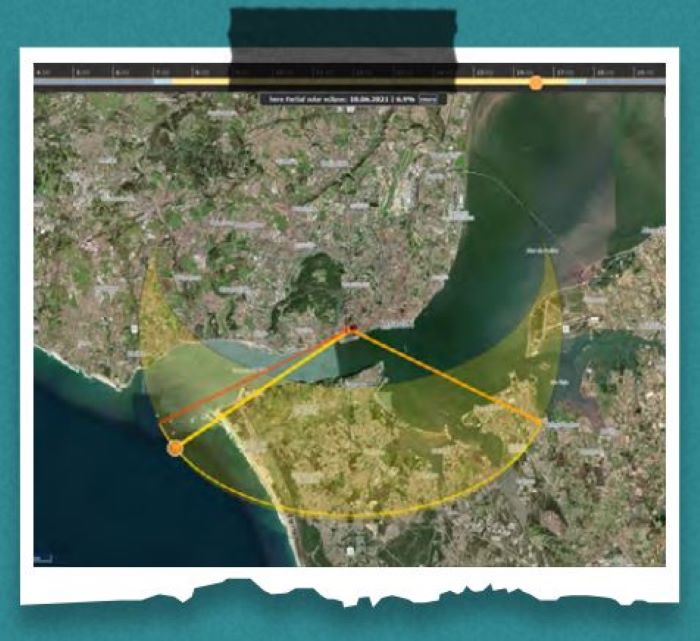Part 3 of our special series of articles on using OSINT in journalism. This time, follow our four steps to completing an open-source investigation
Journalists can follow four steps to start their open source investigations:
Step one: Planning
Before diving into a story you should first determine if an investigation is possible or needed. To keep an investigative mindset it is important to always start with a series of questions. With your questions in mind, you can then formulate a clear strategy and choose the right tools to search for key information. When it comes to information gathering, journalists can decide either to make contact with the target during the investigation or to remain distant from the target and thus have a lower risk of being detected.
Get started by answering the following questions:
1: What has prompted the need for the investigation?
2: What are the key questions that need to be answered?
3: Which tools and platforms can help gather the required information?
Read more:
Open-Source Investigations, Part 1: Using open-source intelligence in journalism
Open-Source Investigations, Part 2: What is an open-source investigation?
Al Jazeera Media Institute Open-Source Investigation Handbook
Search techniques
● Incorporate social media data to cross-reference your findings. Pay particular attention to who was the original source of this information, when this information was posted and where this information was posted from.
● Do a reverse image search using TinEye or Google Images. A reverse image search allows you to upload an image and immediately see when and where this image was first used across the web.
● Use other platforms like WeVerify, to fact-check videos and images online.

Step two: Structure and secure information
Once you have a plan in place, you can now begin identifying the sources you will be using to collect and archive your data so that it remains secure. It is important not to lose sight of ethical, safety and legal considerations especially when dealing with personal data. Various data privacy laws including the General Data Protection Regulation (GDPR), the California Consumer Privacy Act (CCPA) and many others, exist to govern the collection, use and storage of personal data.
Always evaluate any potential data storage risks and keep evidence and documentation safe by using encrypted storage. Also, don’t forget to take precautions to ensure your identity remains secure.
Archiving
Various groups including the investigative journalism group, Bellingcat; the Global Legal Action Network; and the Syrian Archive among others have created a standard process for archiving and investigating open-source evidence. Collecting, preserving and building a body of evidence can serve as proof of power abuses and human rights violations.
Step three: Verifying your information
Raw information gathered must be analysed and processed before any useful or actionable conclusions can be drawn. This includes contacting people and verifying findings across multiple sources. Verification is an iterative process that involves three main phases:
Verifying the source - Where did you get the information from?
Verifying the content - Is the information actually what it claims to be?
Verifying its relevance - Does this information fit into your investigation?
Geolocation
Geolocation is the process of determining the geographic position of a particular event. This can be done by using tools such as Google Maps or Google Earth to match geographical features seen in the footage you are investigating. You can cross-reference stills from the footage to satellite imagery to confirm whether or not a video was indeed taken from a particular location. In some cases, it is possible to identify the approximate time the footage was captured by analysing the sunlight and shadows. Using SunCalc for example, it is possible to analyse the position of shadows and the sun at any given time and date, at any given location.

Step four: Publishing your findings
Finally, journalists should publish their findings as well as show the process behind their investigations with the aim of ensuring transparency as well as building trust with the audience. Ensure that your findings are presented across various digital platforms to ensure your story can have the widest available reach.

Useful tools and networks
● Bellingcat’s Online Investigative Toolkit
● First Steps to Getting Started in Open Source Research
● OSINTcurio.us features weekly podcasts, webcasts and “10 minute tips” on video covering many aspects of doing open source investigations. It’s a community project begun in late 2018 by about 10 contributing experts
● The Open Source Intelligence Framework has a very detailed and ever-growing list of digital investigative tools
● Exposing the Invisible Kit by Tactical Teck
● Open Source Intelligence Techniques by Michael Bazzell
● Online Research Tools by Global Investigative Journalism Network
● Global Investigative Journalism Network (GIJN)
● Organised Crime and Corruption Reporting Project (OCCRP)
● Arab Reporters for Investigative Journalism (ARIJ)
● International Consortium of Investigative Journalists (ICIJ)
● C4ADS is a non-profit organisation dedicated to data-driven analysis and evidence-based reporting of conflict and security issues worldwide.
This article has been adapted from the Al Jazeera Media Institute’s Open-Source Investigation Handbook.








































